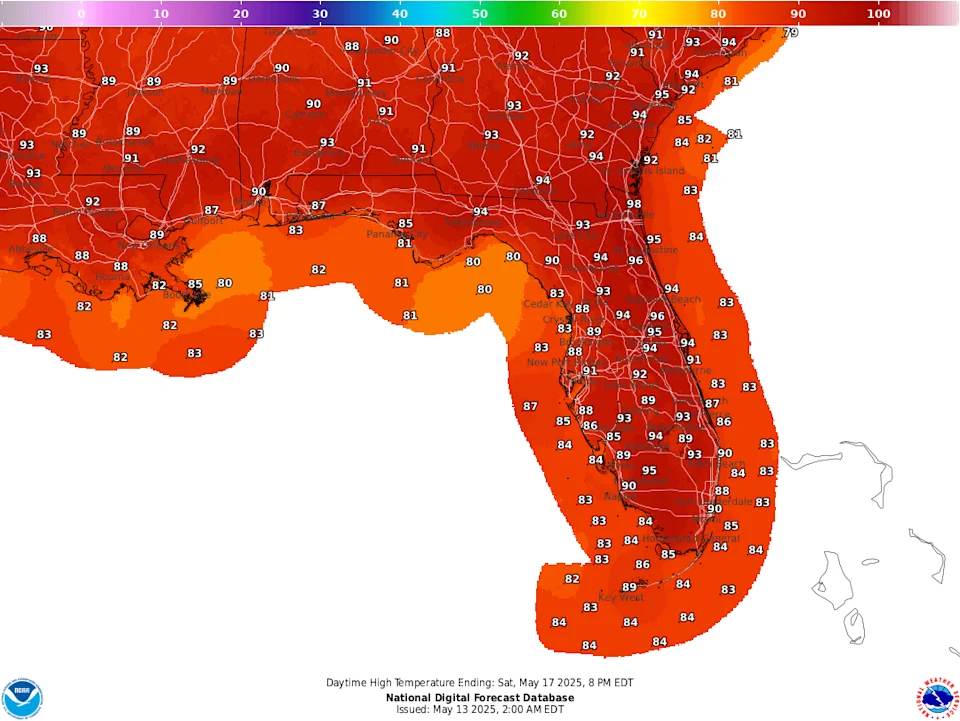
Florida’s Fiery Forecast: How High Will the Heat Climb This Summer?
As summer approaches, Florida residents are facing an unexpected early heat wave that promises to push temperatures to unprecedented levels. With forecasts predicting sweltering conditions across the state, this weather event highlights the growing impacts of climate patterns on daily life and outdoor activities.
The surge in heat is driven by a dominant high-pressure system moving eastward from Texas, stabilizing the atmosphere and trapping warm air near the surface. According to meteorologists, temperatures are expected to soar into the mid to upper 90s, with some areas like Central and Northern Florida feeling as high as triple digits due to high humidity. This isn't just a fleeting warm spell; experts from the FOX 35 Storm Team warn that the heat could persist for up to 10 days, potentially breaking records and extending through late May. "We're going to have a trough dipping down from the north, driving intense heat for the next seven to 10 days," noted Meteorologist Brooks Garner, emphasizing the lack of immediate relief.

Comparisons across regions reveal stark differences: Jacksonville and Tallahassee may hit the upper 90s, while Fort Myers is forecasted to reach 95 degrees by May 21. Southern areas like Miami could see lows in the mid-90s, compounded by persistent eastern winds that keep humidity levels elevated, making it feel even hotter. This heat wave coincides with events like the Welcome to Rockville festival in Daytona Beach, where attendees are bracing for mid-90s temperatures amid sunny skies. The National Weather Service urges vigilance, noting that lower-than-average precipitation through early June could exacerbate drought conditions and strain water resources.
Analysis of these forecasts underscores a broader trend: Florida's early-season heat waves are becoming more frequent, possibly linked to shifting climate patterns. While the data doesn't specify exact causes, the prolonged dry spell and stable high pressure act like a "lid" over the region, preventing cooler fronts from moving in. Residents in areas along I-4 are particularly at risk, with heat indices pushing past 100 degrees. To mitigate dangers, health officials recommend hydration, light clothing, and limiting outdoor exertion during peak hours—critical advice as children, the elderly, and those with health issues face heightened vulnerabilities.

In summary, this heat wave serves as a stark reminder of Florida's evolving weather challenges, potentially affecting everything from public health to agriculture. Will this early scorcher set the tone for an unusually hot summer? Share your thoughts in the comments below—how are you preparing for the heat, and what tips do you have for staying safe?